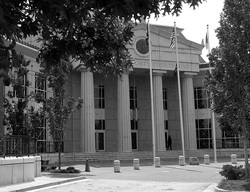We have had a number of responsible clients use these services to make payment arrangements thinking they were being honorable and would eliminate their debts through a repayment plan. One couple spent $5,000 only to have the company go out of business without paying the creditors a dime. Others made payments and even had some interest charges reduced but ended up filing for bankruptcy relief when an unhappy credit card company sued them.
Many hard working families have hoped to pay their debts through debt settlement agencies but it just didn’t work for them. Often there is too much debt and it is simply overwhelming - they seek bankruptcy relief after spending money that could have been used for food or medicine. Be very wary of any agency that tells you to cut your food budget or seek cheaper or less medical care.
California has only one approved and registered credit services organization that we know of. It is called the Consumer Credit Counseling Service of San Francisco. Be sure the name matches exactly as there are many close variations out there with no affliation. Explore all your options carefully and be realistic about your ability to pay. Even if a credit card or other company is willing to settle your debt at a reduced amount will you be able to pay it?
Credit services and debt consolidation is a growth industry with rising allegations of unfair practices. According to the National Association of Attorneys General, since 2004 at least 21 states have brought a minimum of 128 enforcement actions against debt relief companies. According to the Federal Trade Commission, between 2007 and 2009, states’ consumer complaints more than doubled. “Consumers rarely emerge from debt settlement programs with their credit card balances eliminated, these critics say, and many wind up worse off, with severely damaged credit, ceaseless threats from collection agents and lawsuits from creditors.” (Goodman, The New Poor - Peddling Relief, Firms Put Debtors in Deeper Hole, N.Y. Times (Jun. 19, 2010) p. A1).


 RSS Feed
RSS Feed